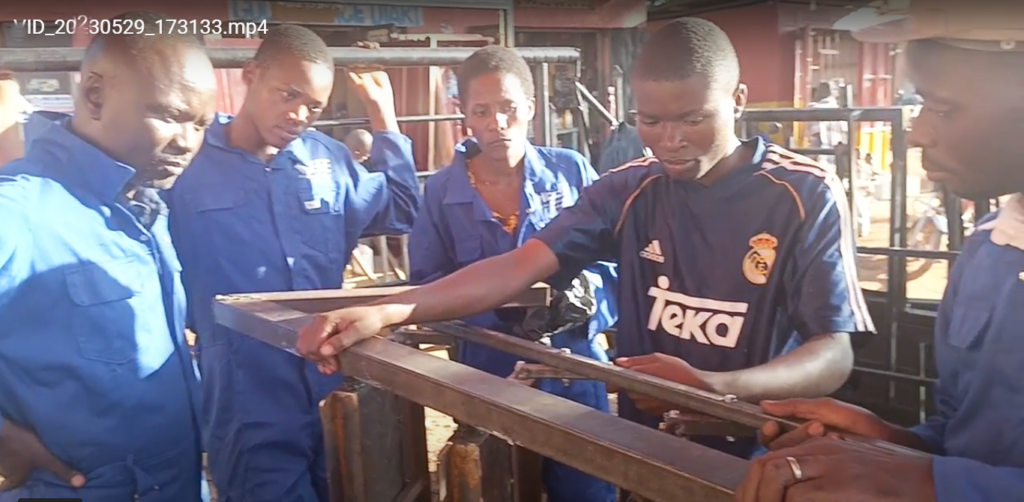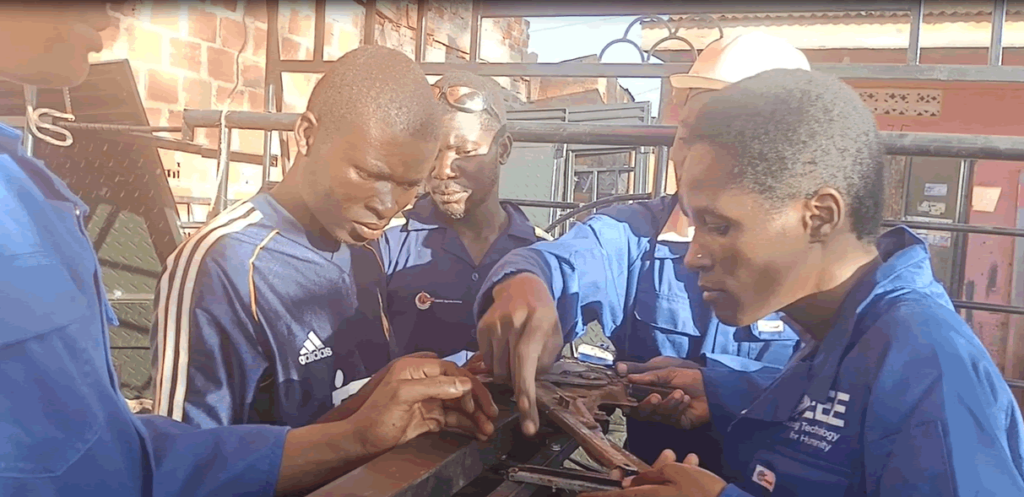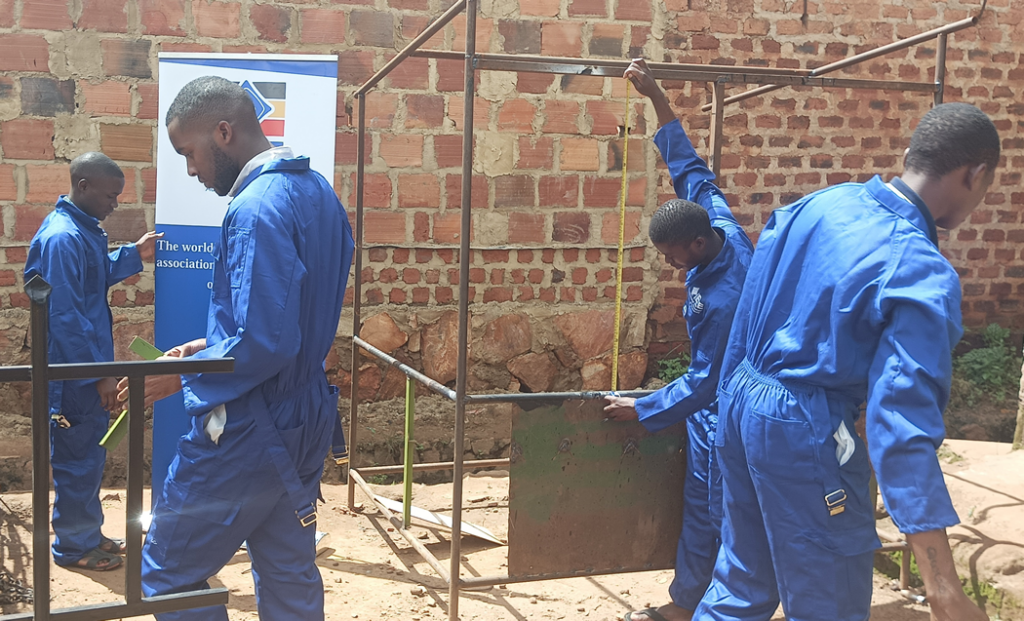In recent years, considerable strides have been made in ensuring that people with disabilities in Uganda have proper access to rehabilitation, health services, and education. Despite these considerable achievements, various challenges still exist. This situation calls for creativity and innovation, especially in the area of engineering and technology.

To come up with a solution that can enable persons with disabilities to overcome these challenges, a group of engineering students, IEEE members from the IEEE Uganda Section, and high school students led by Mr. Kirunda Ivan (IEEE Member) with guidance from project mentors in Uganda are working on a ramp technology. When complete, the technology will be used to enable persons with disabilities to access different spaces with more ease and convenience. The technology involves the integral application of mechanical, electrical, and electronic technologies.
The automated convertible ramp is a system of functional stairs that changes into a ramp for wheelchairs. By simply pushing a lever, the flight of steps shifts and becomes a slope. The device will be designed for a low construction cost, easy installation, and minimal maintenance. Two modules will be developed by the project team i.e. the stair module (to cater to buildings with stairs/ storied buildings) and the non-staired module (for use in places like homes, and buses).


The project team collaborates closely with stakeholders in developing and implementing this solution. This has been done through meetings and collaboration with our partner organization, Rights for Disability Development Foundation (RDDF). “We have started on the designing and fabrication of the technology and its framework. The ramp is being designed based on input from our community partner and the engineering skills of the project members,” said Project Lead Mr. Kirunda Ivan. “ Through this project, the engineering students are able to apply their engineering skills for the betterment of communities. We highly appreciate the funding and support for the EPICS in IEEE program.”
This project is part of the EPICS in IEEE Access and Abilities Competition and received a $6,030 grant. The funding for this project was made possible by the Jon C. Taenzer Memorial Fund established by the IEEE Foundation in 2019 with a generous bequest from the Estate of Mr. Taenzer, an IEEE Life Senior Member.
The next steps for the project include completing the prototype and then testing and deploying it in the field. In addition, the team will also perform technology awareness activities among key stakeholders in the Ugandan community.

Recent Comments